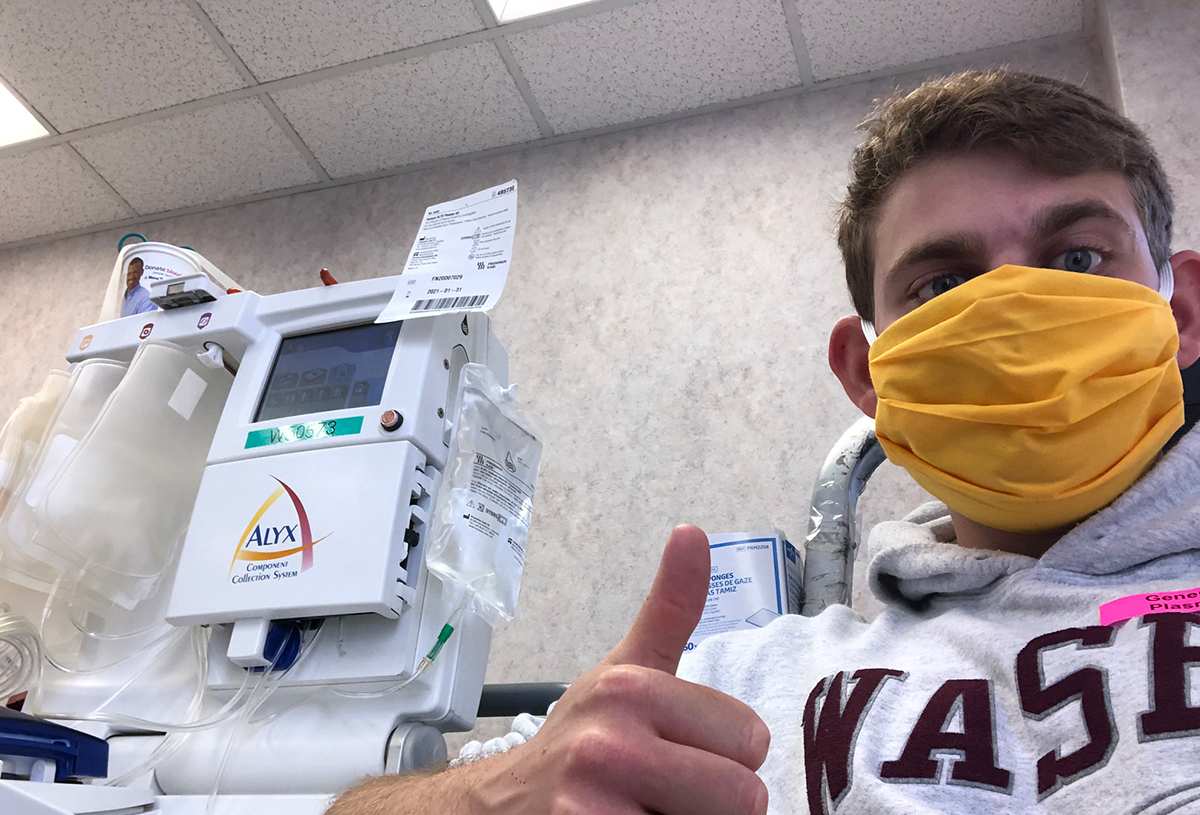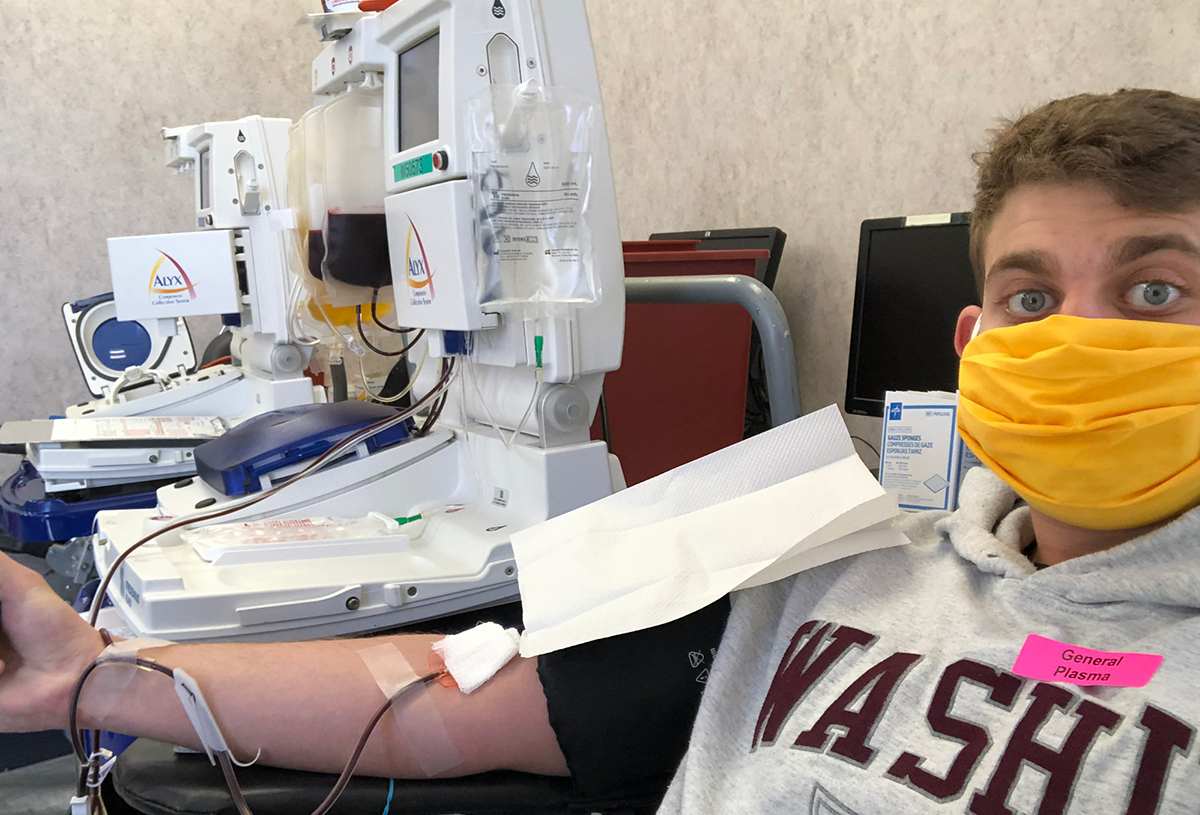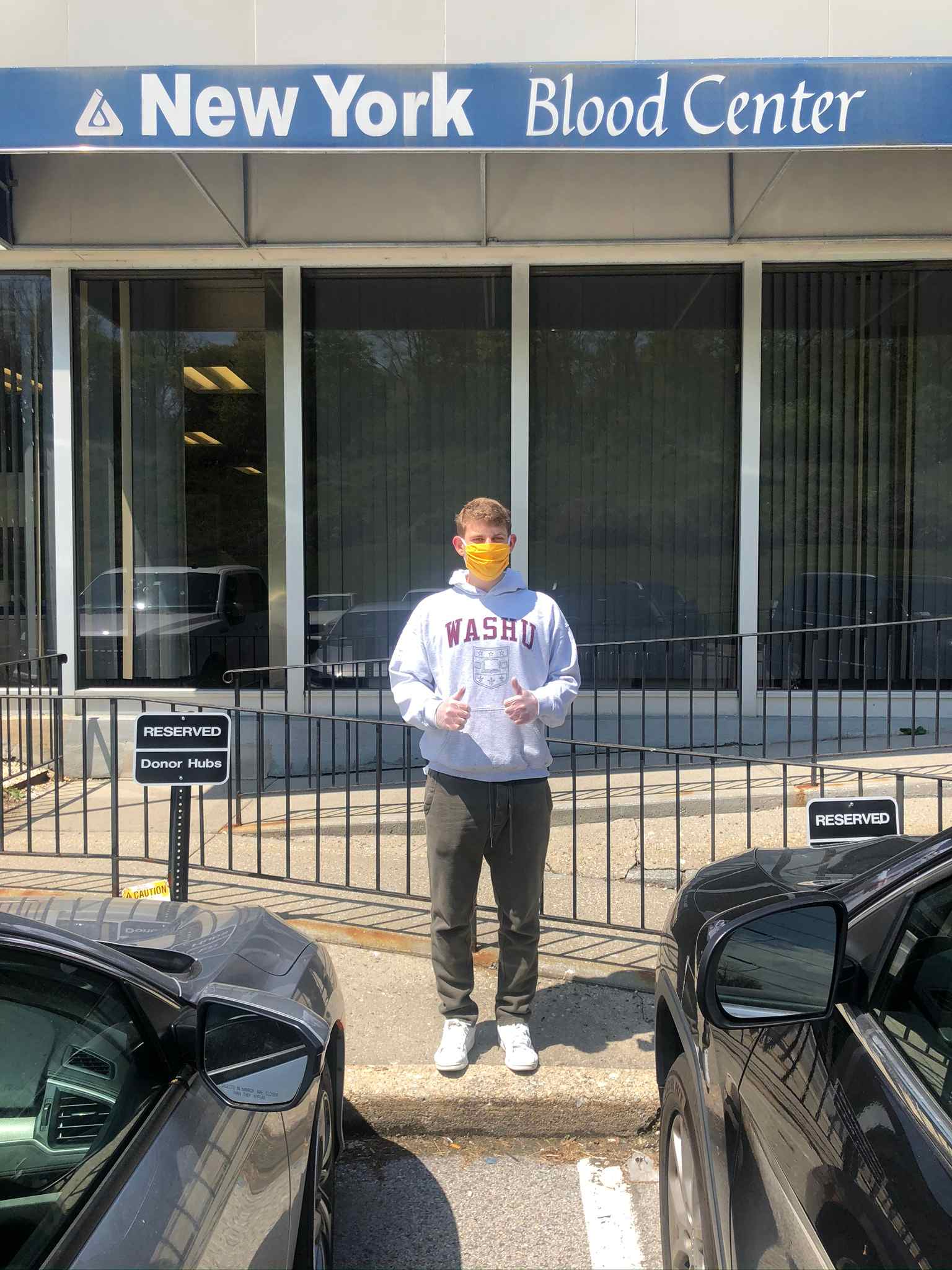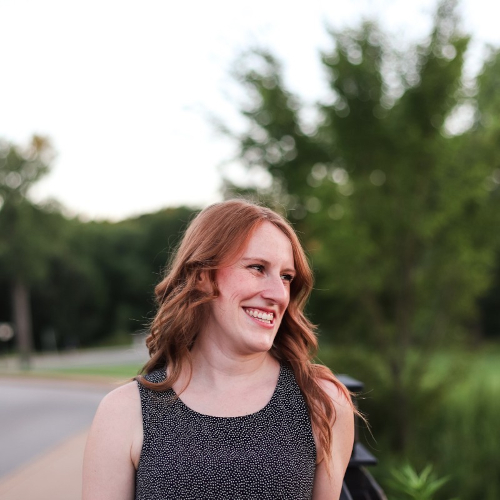BSBA student gives back after COVID-19 recovery
- May 29, 2020
- By Molly Cruitt
- 2 minute read

When it was time for Matthew Loebel, BSBA 2021, to study abroad for a semester, he was more than ready. But as he packed his bags in January and headed to Denmark, he never dreamed that 90 days later, doctors would be calling to request vials of his blood plasma.
No, in early January, he was more concerned with arriving early for his semester at Copenhagen Business School, booking weekend travel throughout Europe and doing everything he could to soak up every moment.
In the end, Loebel had fewer of those moments than he’d anticipated.
During a weekend trip to Milan in February, Loebel and his friends first began to register the severity of the COVID-19 pandemic throughout Europe. As the next month went by and the pandemic raged in some parts of the world, it still didn’t feel quite real in Copenhagen.
“Denmark had no cases,” Loebel recalls. “We were like, ‘OK, just don’t go to Italy, and we’ll be fine.’”
An unwelcome turn of events
Despite concerns about not being able to finish his coursework and barely getting his room packed in time, Loebel started the journey back to New York, where his family lives. After a few days of rest, a sore throat and fatigue prompted him to seek out testing. A few days later, he learned he and several of his travel companions had contracted COVID-19.
Loebel was lucky; his symptoms were mild, and he was able to quarantine at home until the appropriate amount of time had passed.
Loebel spent a few weeks recovering, figuring out his coursework credits and adjusting to online learning. Then, his sister—also a WashU grad and a medical student at Mount Sinai’s Icahn School of Medicine—mentioned the hospital’s investment in using plasma from recovered patients to improve health outcomes for those in poor health.
He submitted to testing, skeptical that he’d developed the threshold 320 antibody count required for donation—after all, he’d barely felt sick.
Then, some good news
Loebel’s antibody levels exceeded 900.
Less than a week later, Loebel was in the chair donating his plasma for the first time—facing his fear of needles. He’d learned that doctors at Mount Sinai Hospital had specifically requested Loebel’s blood plasma and, thanks to its high antibody count, planned to fast track it through the process.
Loebel has donated plasma once more since that first time, and he hopes to continue to give back as often as he can.
“I didn’t really do anything to build these antibodies,” Loebel said. But in his time traveling around Europe, “I didn’t know any better. So, I’m grateful that I can donate these antibodies and do my part.”
He’s inspired by the frontline workers who show resilience every day. “It’s exciting to see how much help is out there, and how many people are willing to do whatever it takes to get through this. I’m just happy I get to be one itsy-bitsy part in that.”
Giving Plasma
Matthew Loebel was inspired by the frontline workers who show resilience every day.



Media inquiries
For assistance with media inquiries and to find faculty experts, please contact Washington University Marketing & Communications.
Monday–Friday, 8:30 to 5 p.m.
Sara Savat
Senior News Director, Business and Social Sciences
